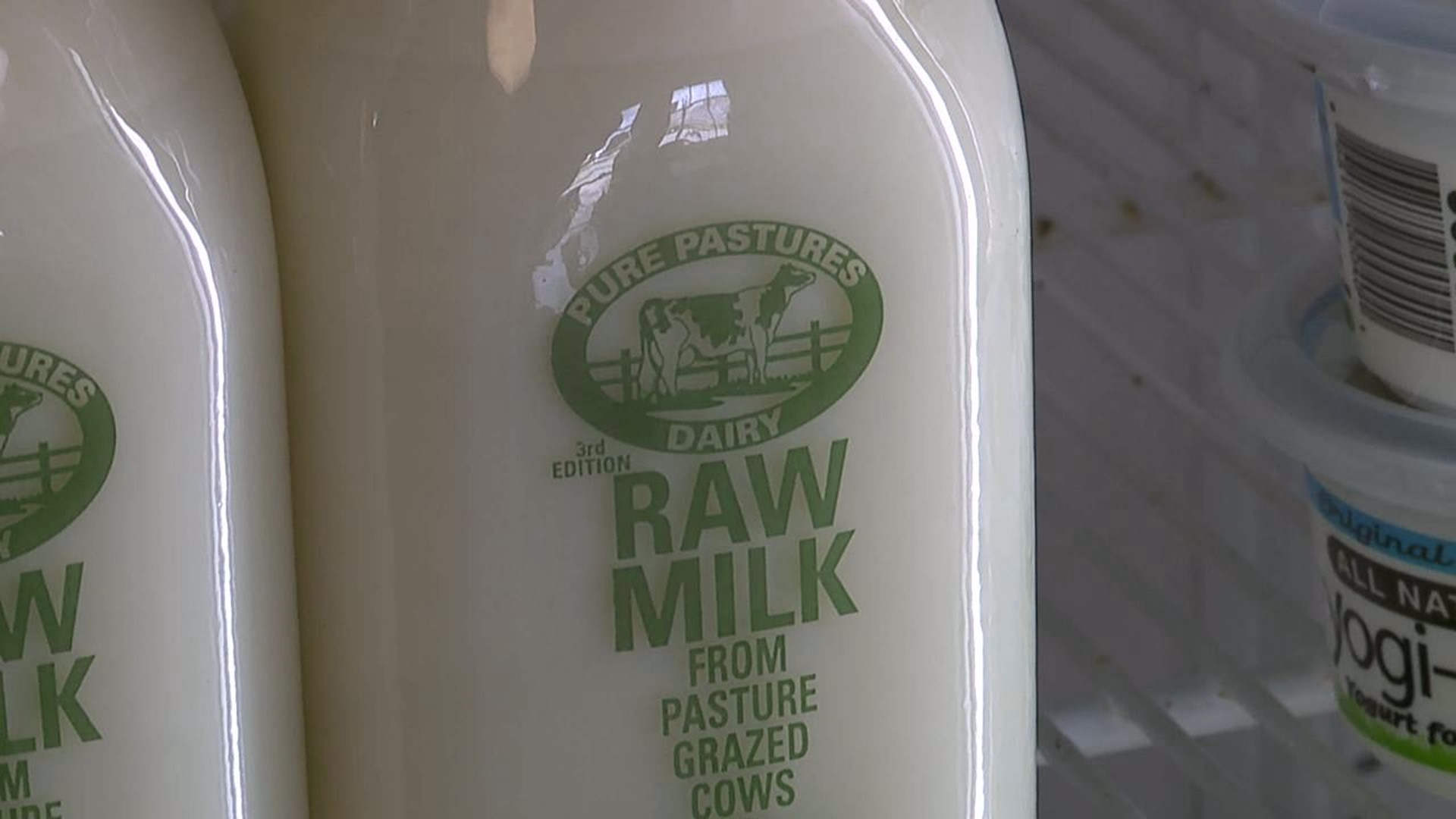EAST BERLIN, Pa. — Larry Stoner's family has been on the same land on Germany Road in Reading Township, Adams County since 1928.
Today, it's home to Apple Valley Creamery, where roughly 5,000 gallons of milk are bottled weekly; this includes anywhere between 700 to 800 gallons of the unpasteurized option.
Unpasteurized, or raw, milk is achieved by foregoing the process of using heat to kill bacteria. Farmers say that its popularity has grown significantly
"We’ve been bottling milk with a permit for 17 years now," Stoner, the fourth-generation farmer and current owner said. "We've seen significant upward movement in sales in the last year-and-a-half."
According to the CDC, raw milk is one of the riskiest foods you can consume.
It’s banned in several states and can lead to diarrhea, stomach cramping, and vomiting if not processed, according to state guidelines. In some serious cases, the bacteria can even be life-threatening.
A judge recently ordered a Lancaster County farmer, who has not followed state regulations, to stop selling raw milk. In December 2023, inspectors with the Department of Agriculture were notified of two E. coli cases in New York and Michigan that stemmed from milk products sold by Miller's Organic Farm.
Pennsylvania's Milk Sanitation Law does allow for the legal production of raw milk, and it is a strict process for both pasteurized and unpasteurized products.
"The raw milk is tested a little more rigorously by the state than even the pasteurized milk," Stoner said. "Things have to be very clean, from the milking, from the harvesting, all the way through to the bottle."
Apple Valley Creamery has its raw milk product tested twice a month, compared to its pasteurized product only once a month.
Stoner says that in 17 years they have only ever had one test come back positive for a pathogen in their raw milk. A follow-up test found no traces of the bacteria and no illnesses were reported from their milk.
Stoner says regulated farms like his provide a safe product.
"If they’re buying it from a permitted farm I don’t think… there’s very little concern," Stoner expressed.

